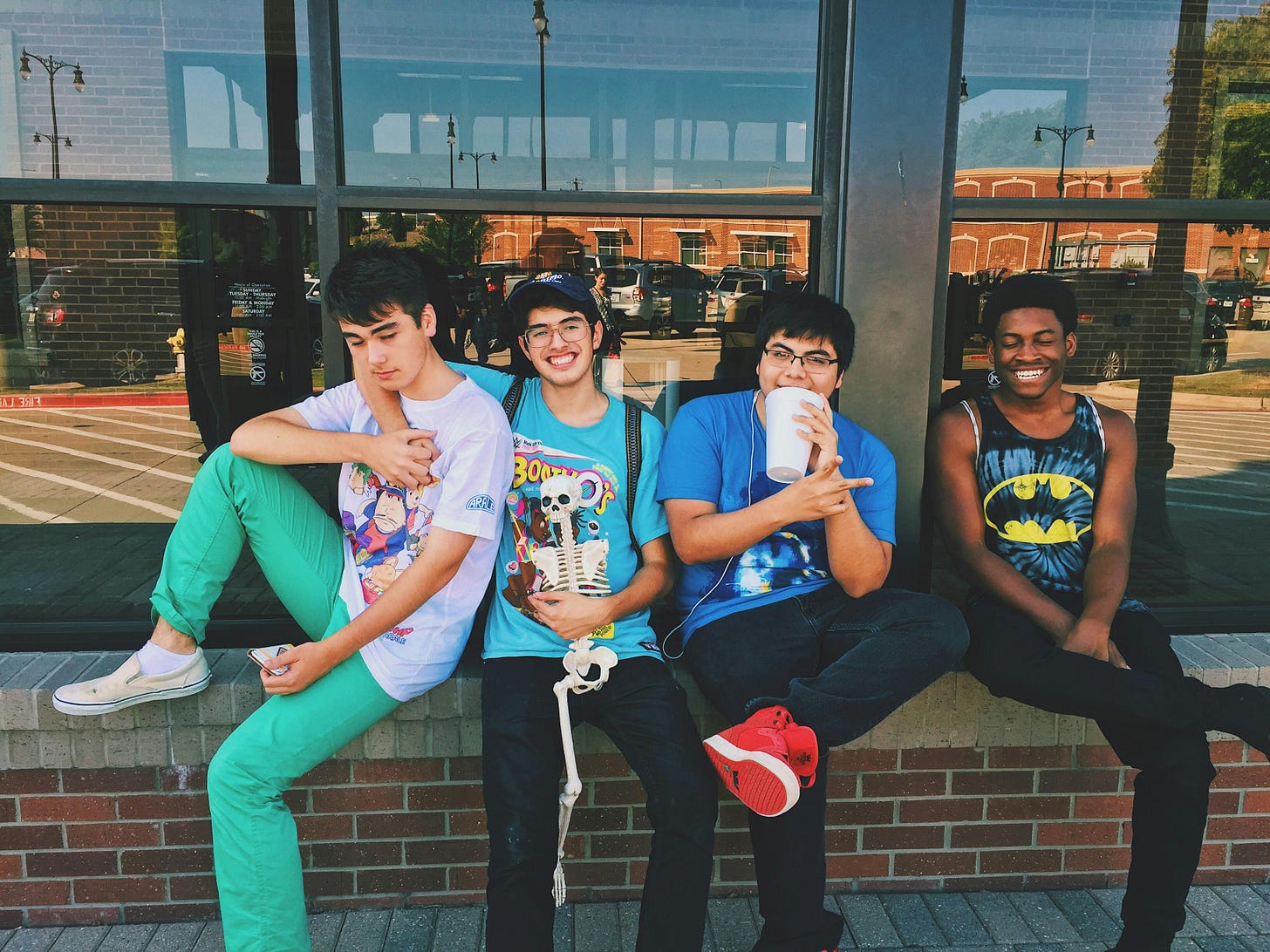Inconsistency is key
It took a residency application to figure out what my YA comedy novel is even about

I’ve been working for a while on Ferda [Sesame] Boys, my sketch comedy project. This means I have a lot of material for it: a project blurb, a synopsis of each sketch, a proposal explaining why this project is important (both in terms of artistic risk and in the current social context), and scripts that have been revised by peers and even performed.
I didn’t have any of that for my debut YA novel, All My Usual Lies. Even though I’ve been working on the book and on the series as a whole for over a decade, I’ve always struggled to not only place it in terms of importance (what makes this a book that needs to be published?), but also to even write a simple synopsis.
Why? Well, because my brain has trouble keeping track of all the details of the story, and I can’t even decide what it’s really about in the first place. I have so many versions written, with so many contradictory storylines. I have a handful of spreadsheets detailing what happens and when, but the character motivations are still nebulous.
Which is why I need time and space to work on it. So, I just submitted my first ever application to a writing residency, and I applied to develop my manuscript for All My Usual Lies.
In my application, I leaned into the struggles I was having with inconsistency. I explained that the story is about conflicting accounts, where three unreliable narrators take turns telling a story and discrediting each other’s versions of events. In my cover letter, I stated explicitly that I needed support with developmental edits, to help my story make sense and establish a clear outline for my next draft.
Through working on my application, I discovered the importance of this novel: All My Usual Lies presents queer identities that are fluid and often remain unnamed, rejecting the well-worn coming out narrative. The guys choose friendship over romance, question the boundaries between platonic and physical relationships, and build intimacy through shared risk and play. These representations of young men who care for and respect each other are crucial in the context of rising rates of toxic masculinity.
I’m not going for anything particularly groundbreaking; I’m just writing something I’d want to read — a funny story full of risk-taking teenagers, minus the usual forced undercurrent of romance and ambient homophobia.
I have no idea how competitive this residency is, and maybe my story isn’t a good fit for the mentoring authors. But I’m very proud I put in the time to create a proposal for this project, because it will make it easier to guide my independent work on it and to apply for other opportunities.
Read the synopsis for All My Usual Lies
In this first novel of a projected four-part series, Jesse thinks his excellent lying skills helped him get away with the potato cannon incident, but Sebastian knows better – although maybe if he wasn’t so obsessed with his subpar wilderness survival skills, we’d have better answers about what happened to that missing canoe. When Ty’s not busy perfecting his “mysterious brooding guy” persona (read: looking completely unhinged), he’s investigating how the Bloody Mary was summoned for real – and if not, who faked it, and why?
Meanwhile, how is Jesse supposed to dodge the virgin crown – and, honestly, what even counts as a hook-up? And how does everyone already know about that gay makeout sesh? Most importantly, no one can agree on who actually started the infamous daring game – only that it’s completely out of control, and somehow, they’re all making it worse.
Dodging adult supervision in the alluring disconnect of the pre-smartphone era, the game must often be played outdoors, where Winnipeg’s volatile weather dictates when and where they can play – inspiring some dares and raising the stakes on others. Jesse, Sebastian, and Ty are supported by a cast including Jesse’s twin sister and his group of friends from their competitive gymnastics team; Sebastian’s arch-nemesis (in AP classes); a new student who knows what she wants, but probably should keep her voice down about it; the guys on the hockey team; Jesse’s best friend, who’s getting a bit too close to Ty’s slightly unhinged friend; and a slew of parents and teachers, who are all kind of problematic and also trying their best.

